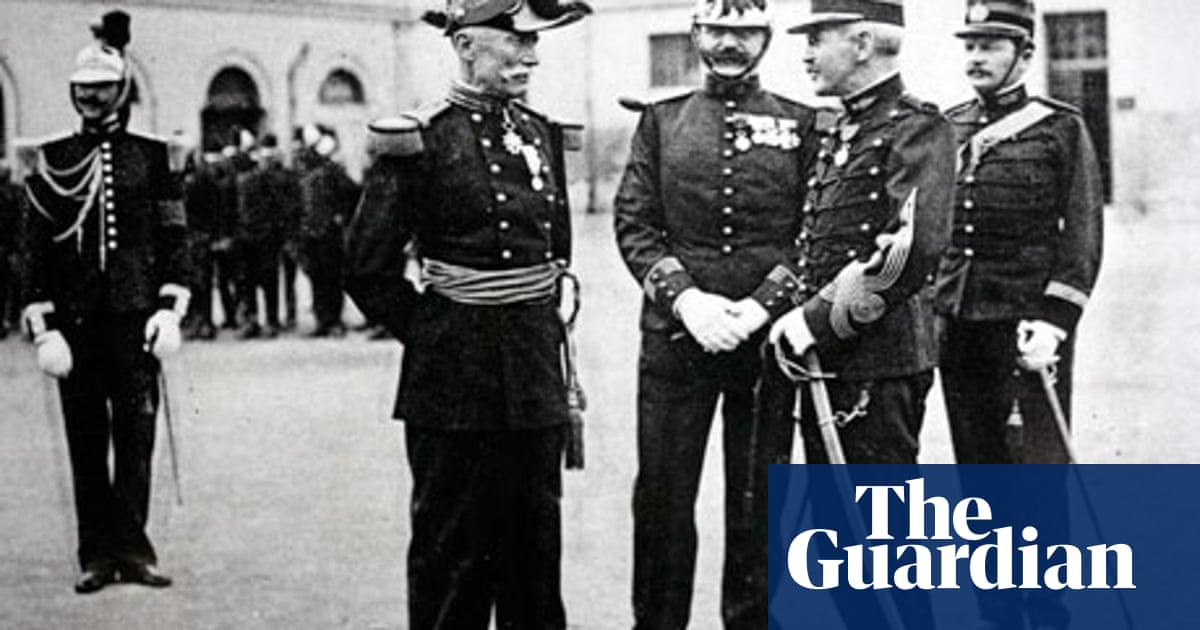Compact and the anti-Dreyfusards

I’m not familiar with John Ganz, but this is a really interesting essay:
Readers of the March 22nd New York Times, might have noticed the article “Two Religious Conservatives and a Marxist Walk Into a Journal,” announcing the new magazine Compact, a joint project of rightists Sohrab Ahmari and Matthew Schmitz with “Marxist labor populist” Edwin Aponte. Ahmari is one of the more prominent names of the illiberal Catholic Right; Schmitz, an editor of First Things, a second-string character of the same political sympathies; Aponte was one of the founders The Bellows, an unsuccessful predecessor project with similar “post-left” politics. Some of the other names associated with the venture are well-known Right critics of liberal democracy: Adrian Vermuele, an Integralist Harvard Law professor and Carl Schmitt fan, and Patrick Deneen, author of Why Liberalism Failed”— but there are also prominent members of the contrarian, anti-anti-Trump Left: specialists of waspish and cranky philippic that borders on paranoid raving like Glenn Greenwald and Michael Tracey.
If the membership wasn’t enough of a clue, the mission statement makes clear that the main enemy of this coalition is liberalism . . .
The Times article and the founders make the venture sound like a novelty; a bold attempt at an original synthesis, but here things are starting to sound uncomfortably familiar. . . .
[F]ew things that have emerged in recent years are as redolent of that era as Compact’s attempt to transcend the Left-Right dichotomy with a traditionalist version of anti-capitalism. With its combination of the aspirations of yellow labor and the practitioners of yellow journalism, of Catholic Integralism and a revisionist, non-Marxist socialism, allied against a liberal “overclass controlling government, culture, and capital,” Compact is grasping at a kind of anti-Dreyfusism without a Dreyfus, and to be fair, without outward manifestation of overt antisemitism. Their revolt against modernity doesn’t yet need the explicit effigy of race, something the anti-Dreyfusards found to be an indispensable principle of organization.
The Dreyfus Affair, more than a legal drama or a campaign for to clear an innocent man’s name, was a crisis of democracy. Dreyfus the man become a symbol of a struggle over the political order itself. It gave birth to a kind of realignment: one side you had dedicated republicans and democrats of varying shades and on the other those that believed that the parliamentary republic was hopelessly decadent, corrupt, and weak, that it needed to be replaced with a stronger state, more integral and wholesome forms of community, the ancient traditions of a France that had been poisoned by the forces of modern culture and industry, represented most saliently by the figure of the Jew.
Several movements were forged in the crucible of the Affair, attempts to mobilize its passions for larger projects: Les Jaunes, “yellow labor”, sponsored by business interests, that rejected the Marxist notion of class struggle in favor of a proposed inter-class cooperation; the Integralism of Charles Maurras, who proposed a return to state Catholicism and monarchy as remedies for the ills of modern life; the morbid and pessimistic nationalism of Barrés, preoccupied decline and decadence. They were joined by defectors from the Left disillusioned with democracy and Dreyfusism like Sorel, who believed the virile, masculine working class was being sapped of its strength by democratic socialism’s compromises with liberalism and who saw in the myths of nationalism the possibility of more “authentic” forms of solidarity. They often labeled themselves “national socialists,” a term now forever covered in infamy that once sounded fresh and innovative. The followers of Sorel and members of Action Française even collaborated together in the Cercle Proudhon, named after Marx’s antagonist in the socialist movement, which published the journal Cahiers du Circle Proudhon. Their 1912 manifesto sounds like a more muscular and open version of Compact.
I’m only slightly conversant with the politics and polemics of the Third Republic. Nevertheless I’m struck by the startling echoes of the rhetoric and ideology of such proto-fascist figures as Maurras and Barres that can now be found in the stuff being cranked out in the Year of Our Lord 2022 by the likes of Adrian Vermuele — who I have little doubt is an enthusiastic fan of things like the prison sentence imposed back in the good old days on Oscar Wilde for frequenting underage rent boys — and his new best friend Glenn Greenwald.
Strange bedfellows indeed.


